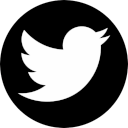The Posthuman ‘Othering’ of the World in Mary Oliver’s Poetry
DOI:
https://doi.org/10.13136/2281-4582/2022.i19.1136Keywords:
Mary Oliver, ecopoetry, posthuman, animal studies, new ecocriticismsAbstract
The essay argues that, in her poetry, Mary Oliver represents a ‘world’ that is made up of nonhuman animals, vegetables, and minerals, in which she ‘others’ organic and inorganic beings and entities in a posthuman attitude. This is posited by relating to the “earth-others” (Braidotti) on equal terms and in a perspective that decenters and de-emphasizes the human subject by reconceptualizing agency as a shared and interconnected ongoing process. Moreover, Oliver substitutes imagination for reason and language as the distinctive human faculty, which, paradoxically, she proposes at the same time as the interpretive tool that may allow us to ‘cross over’ into the consciousness of the nonhuman. Thus, Oliver performs—and suggests—a cognitive leap that may bring us in touch with the different, embodied and embedded, ‘logic’ in which the earth-others inhabit the ecosystem, and one that human animals may fruitfully learn from in order to honor and preserve that same ‘world.’
References
Barad, Karen. Meeting the Universe Halfway: Quantum Physics and the Entanglement of Matter and Meaning. Durham: Duke University Press, 2007.
Bate, Jonathan. The Song of the Earth. London: Picador, 2000.
Bennet, Jane. Vibrant Matter: A Political Ecology of Things. Durham: Duke University Press, 2010.
Bentham, Jeremy. An Introduction to the Principles of Morals and Legislation. Edited by Jonathan Bennett, 2017 (1780). https://www.earlymoderntexts.com/assets/pdfs/bentham1780.pdf. Last visited 22/09/2021.
Binasco, Camilla. Dall’epistemologia all’etica: per una po(etica) della relazione fra soggetto e natura nella poesia americana contemporanea. Doctoral dissertation. University of Milan, 2019.
Bly, Robert. Leaping Poetry: An Idea with Poems and Translations. 1975. Pittsburgh: University of Pittsburgh Press, 2008.
Braidotti, Rosi. “A Theoretical Framework for the Critical Posthumanities.” Theory, Culture, Society (Special Issue Transversal Posthumanities) (2018): 1-31.
Bryson, J. Scott. Ecopoetry: A Critical Introduction. Salt Lake City: University of Utah Press, 2002.
---. Place, Space, and Contemporary Ecological Poetry: Wendell Berry, Joy Hario, and Mary Oliver. Doctoral dissertation. University of Kentucky, 1999.
Buell, Lawrence. The Environmental Imagination: Thoreau, Nature Writing, and the Formation of American Culture. Harvard: Harvard University Press, 1996.
Calarco, Matthew. Thinking through Animals: Identity, Difference, Indistinction. Stanford: Stanford University Press, 2015.
Christensen, Laird. “The Pragmatic Mysticism of Mary Oliver.” Ecopoetry: A Critical Introduction. Edited by J. Scott Bryson. Salt Lake City: University of Utah Press, 2002. 135-152.
Coole, Diana. “Agentic Capacities and Capacious Historical Materialism: Thinking with New Materialisms in the Political Sciences.” Millennium: Journal of International Studies 41.3 (2013): 451-469.
Deleuze, Gilles. Francis Bacon: The Logic of Sensation. 1981. Trans. Daniel W. Smith. London: Continuum, 2005.
Deleuze, Gilles and Felix Guattari. What Is Philosophy? Trans. Hugh Tomlinson and Graham Burchell. New York: Columbia University Press, 1994.
Elder, John. Imagining the Earth: Poetry and the Vision of Nature. 1985. Athens: University of Georgia Press, 1996.
Emerson, Ralph Waldo. “Nature.” Essays and Lectures. Edited by Joel Porte. New York: Library of America, 1983. 9-49.
Gaard, Greta. “New Ecocriticisms: Narrative, Affective, Empirical and Mindful.” Ecozon@ 11.2 (2020): 224-233.
Howard, Ben. “World and Spirit, Body and Soul.” Poetry 158.6 (1991): 342-344.
Johnson, Mark. “‘Keep Looking’: Mary Oliver’s Emersonian Project.” The Massachusetts Review 46.1 (2005): 78-98.
Iovino, Serenella and Serpil Oppermann. “Introduction: Stories Come to Matter.” Material Ecocriticism. Edited by Serenella Iovino and Serpil Oppermann. Bloomington: Indiana University Press, 2014. 1-17.
Langbaum, Robert. “New Nature Poetry.” The Modern Spirit. New York: Oxford University Press, 1959. 101-126.
Latour, Bruno. “Agency at the Time of the Anthropocene.” New Literary History 45.1 (2014): 1-18.
Loreto, Paola. “Audial and Visual Conversation in Mary Oliver’s Dog Songs: Language as a Trans-Species Faculty.” Ecozon@ 12.1 (2021): 153-166.
---. “The Soundscape of the Cape: Mary Oliver’s Ecocentric Mysticism.” ISLE: Interdisciplinary Studies in Literature and Environment 27.3 (Oct. 5, 2020): 1294-1309.
“Mary Oliver.” Poetry Foundation. https://www.poetryfoundation.org/poets/mary-oliver. Last visited 22/09/2021.
Marx, Leo. The Machine in the Garden: Technology and the Pastoral Ideal in America. Oxford: Oxford University Press, 1964.
Nagel, Thomas. “What Is It Like to Be a Bat?” The Philosophical Review 83.4 (1974): 435-450.
Oliver, Mary. American Primitive. New York: Little, Brown, 1983.
---. A Poetry Handbook: A Prose Guide to Understanding and Writing Poetry. San Diego: Harcourt Brace, 1994.
---. Dog Songs: Thirty-five Dog Songs and One Essay. New York: Penguin, 2013.
---. Dream Work. New York: The Atlantic Monthly Press, 1986.
---. House of Light. Boston: Beacon Press, 1990.
---. New and Selected Poems. Vol. 1. Boston: Beacon Press, 1992.
---. Owls and Other Fantasies. Boston: Beacon Press, 2003.
---. Red Bird Poems. Boston: Beacon Press, 2008.
Uexküll von, Jakob. “A Stroll Through the Worlds of Animals and Men: A Picture Book of Invisible Worlds.” 1957. Semiotica 89.4 (1992): 319-391.
Wittgenstein, Ludwig. Philosophical Investigations. Trans. G. E. M. Anscombe. Oxford: Blackwell, 2008.
Wolfe, Cary. Animal Rights: Animal Culture, the Discourse of Species, and Posthumanist Theory. Chicago: The University of Chicago Press, 2003.
---. What is Posthumanism? Minneapolis: University of Minnesota Press, 2010.
Downloads
Published
Issue
Section
License
Copyright (c) 2022 Paola Loreto

This work is licensed under a Creative Commons Attribution-NonCommercial 4.0 International License.
Iperstoria is an Open Access journal.- Authors retain copyright and grant the journal right of first publication with the work simultaneously licensed under a Creative Commons Attribution 4.0 BY-NC License that allows others to share the work with an acknowledgement of the work's authorship and initial publication in this journal.
- Authors are able to enter into separate, additional contractual arrangements for the non-exclusive distribution of the journal's published version of their work (e.g., post it to an institutional repository or publish it in a book), with an acknowledgement of its initial publication in this journal. We require authors to inform us of any instances of re-publication.







